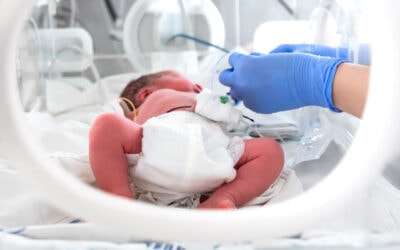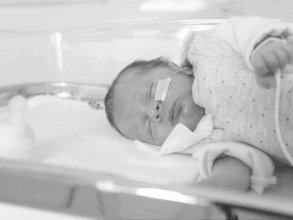Every day in neonatology, just a few seconds can make the difference between the stability of a preterm infant and the onset of a critical event. Among these silent threats, necrotizing enterocolitis (NEC) remains one of the most feared. This article provides you with...
Enteral Nutrition
What are the risk factors for Necrotising enterocolitis (NEC)?
Definition of NEC Necrotising enterocolitis (NEC) is a serious condition that can occur following preterm birth, characterized by bowel inflammation that prevents milk feeding and may require surgery. It is associated with high mortality rates, exceeding 20%. The...
Enteral nutrition in neonates: choosing a safe and specific system that avoids connection errors
Enteral nutrition is the preferred method for delivering nutrients to patients who are unable to consume them orally. While it is associated with fewer complications compared to other nutritional methods, it is not entirely risk-free. One of the most critical...
Enteral nutrition in the newborn: analysis of scientific evidence on feeding methods
The following article offers an in-depth analysis of the scientific evidence on enteral nutrition in infants, focusing in particular on the methods of administration. Nutrition in infants is a vital component for their development and well-being, and the choice of the...
Enteral nutrition in infants: the problem of accidental connections
For the treatment of patients, from adults to infants and premature babies, admitted to health care facilities, it is often necessary to place probes and catheters, the use of which involves the administration of enteral nutrition in addition to the infusion of drugs...
Enteral nutrition in infants: small connections for small patients
For the treatment of patients, from adults to infants and premature babies, admitted to healthcare facilities, it is often necessary to place probes and catheters whose use includes the administration of enteral nutrition in addition to the infusion of drugs and other...
Efficacy and importance of connector cleaning in neonatal enteral nutrition
Enteral nutrition tubes are used in healthcare facilities to administer nutrition, fluids and medication to patients who cannot be fed orally. For years, these patients have been subjected to the risks of misconnections, defined as incorrect administration of an...
Enteral nutrition delivery systems: which one to choose in neonates?
Nutritional needs are understood as the amount of each of the nutrients required by an individual at each stage of life to maintain a correct nutritional status and, thus, prevent disease and ensure proper growth. Ensuring that these nutritional needs are met in the...
Is the use of cleaning protocols sufficient to increase the safety of ENFit® connectors in neonates?
The introduction of ENFit® connectors in neonatology units, with the aim of avoiding connection errors between systems intended for different clinical therapies, has generated much debate among experts in the field. The new connector for enteral nutrition poses a...








